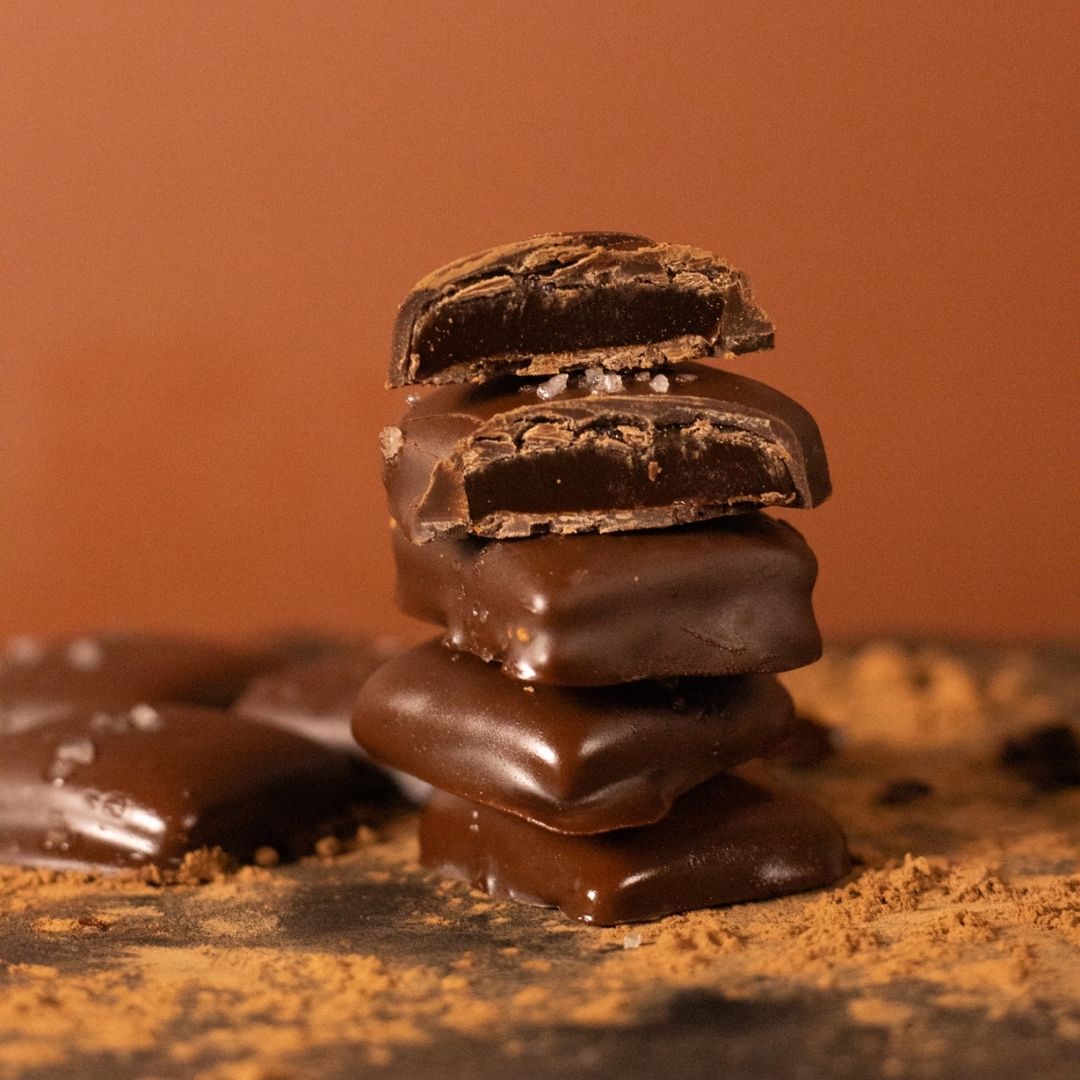Uncovering the Truth: Does Dark Chocolate Contain Dairy?
Table of Contents:
- Exploring the Ingredients of Dark Chocolate
- What Typically Goes Into Dark Chocolate?
- Dairy Content in Common Chocolate Types
- The Varieties of Dark Chocolate and Dairy Use
- Factors Influencing Dairy Addition
- Vegan and Dairy-Free Options
- Health Implications of Dairy in Dark Chocolate
- Benefits of Dairy-Free Dark Chocolate
- Potential Concerns with Dairy in Chocolate
- Understanding Labels and Certifications
- Decoding 'Dairy-Free' and 'Vegan' Labels
- Importance of Allergy Information on Packaging
- Conclusion
- Frequently Asked Questions
If you're a dark chocolate enthusiast with a penchant for rich, decadent treats, you might have wondered, "Does dark chocolate contain dairy?" The answer to this question can vary depending on the specific type and brand of dark chocolate you choose.
While traditional dark chocolate is typically dairy-free, it's essential to read the label carefully, as some varieties may include dairy ingredients for added creaminess.
When navigating the world of dark chocolate, understanding whether it contains dairy is crucial for individuals with lactose intolerance or dairy allergies.
By being aware of the ingredients in your favorite indulgence, you can make informed choices that align with your dietary preferences and restrictions. Stay tuned as we delve deeper into the realm of dark chocolate to uncover the truth about its dairy content.
Exploring the Ingredients of Dark Chocolate
What Typically Goes Into Dark Chocolate?
When it comes to dark chocolate, the main ingredients are cocoa solids, sugar, and often a small amount of added cocoa butter. These components are what give dark chocolate its rich and intense flavor.
Dairy Content in Common Chocolate Types
While traditional dark chocolate is dairy-free, some variations may contain dairy. It's essential to check the label, especially in flavored dark chocolates or those with added fillings, as these may include dairy ingredients for texture or taste.
Therefore, if you have lactose intolerance or a dairy allergy, be sure to review the ingredients list to ensure the dark chocolate you choose is dairy-free.
The Varieties of Dark Chocolate and Dairy Use
When it comes to dark chocolate, most traditional varieties do not contain dairy. However, it is essential to be vigilant as some types may include dairy to enhance the flavor and texture. The primary components found in dark chocolate are cocoa solids, sugar, and occasionally a small amount of cocoa butter, leading to its rich taste.
For individuals with lactose intolerance or dairy allergies, it is crucial to inspect the ingredients of dark chocolate carefully, particularly in flavored or filled variants that may contain dairy.
Factors Influencing Dairy Addition
The decision to add dairy to dark chocolate can be influenced by various factors. Some manufacturers may opt to include dairy to create a creamier texture or to balance the bitterness of the cocoa.
Additionally, dairy ingredients like milk powder or cream can enhance the overall mouthfeel of the chocolate, providing a smoother and more indulgent experience.
It's important to note that the presence of dairy in dark chocolate can vary depending on the brand and recipe, so reading the label is key to understanding the composition of the product.
Vegan and Dairy-Free Options
For individuals following a vegan lifestyle or those with dairy allergies, there are ample dairy-free dark chocolate options available in the market.
Vegan dark chocolate is typically made without any animal-derived ingredients, including dairy.
Manufacturers use alternatives like coconut milk, almond milk, or soy milk to achieve a creamy texture without the need for traditional dairy products.
These dairy-free options ensure that everyone can savor the delicious taste of dark chocolate without compromising their dietary preferences or restrictions.
Health Implications of Dairy in Dark Chocolate
Benefits of Dairy-Free Dark Chocolate
When opting for dairy-free dark chocolate, you're choosing a more suitable option for individuals with lactose intolerance or dairy allergies. By avoiding dairy ingredients, you can enjoy dark chocolate without the risk of digestive discomfort or allergic reactions.
Additionally, dairy-free dark chocolate often appeals to vegans and those following dairy-free diets, expanding the product's consumer base.
Understanding Labels and Certifications
Decoding 'Dairy-Free' and 'Vegan' Labels
When it comes to dark chocolate, understanding labels is key to ensuring you're making the right choice for your dietary needs. Products labeled as 'dairy-free' indicate that they do not contain any dairy ingredients, making them suitable for lactose-intolerant individuals and those with dairy allergies.
On the other hand, 'vegan' labels go a step further, guaranteeing that the chocolate is free from not only dairy but also any animal-derived ingredients, aligning with vegan dietary preferences.
Importance of Allergy Information on Packaging
Checking for allergy information on dark chocolate packaging is crucial, especially if you have specific dietary requirements or allergies. Manufacturers are required to disclose potential allergens like dairy to protect consumers with allergies.
By reviewing these labels, you can make informed choices about whether a particular dark chocolate product is safe for you to consume. Always remember to read the packaging thoroughly to safeguard your health and well-being.
Conclusion
Understanding the presence of dairy in dark chocolate is crucial for individuals with dietary restrictions. While traditional dark chocolate is typically dairy-free, certain varieties may contain dairy for flavor enhancement. Factors such as texture and taste balance play a role in the inclusion of dairy.
It's important to be mindful of labels and certifications when selecting dark chocolate products. By checking for allergy information and understanding labels like 'dairy-free' and 'vegan,' you can make informed choices based on your dietary needs.
Manufacturers are required to disclose allergens like dairy to ensure consumer safety. Being aware of dairy in dark chocolate empowers you to make dietary decisions that align with your preferences and health requirements.
Frequently Asked Questions
Is dark chocolate always dairy-free?
Most traditional dark chocolates are dairy-free, but some varieties may contain dairy for flavor. Check labels for allergen info.
How can I tell if dark chocolate has dairy?
Check the ingredient list for milk, butter, cream, or any dairy products. Look for "dairy-free" on the packaging if needed.
Are vegan dark chocolates always dairy-free?
Yes, vegan dark chocolates are dairy-free by definition as they do not contain any animal products, including dairy.
Why is it important to check for dairy in dark chocolate?
For those with lactose intolerance or dairy allergies, avoiding dairy in dark chocolate is crucial to prevent adverse reactions.
What should I do if I have a dairy allergy and want to eat dark chocolate?
Choose dark chocolates labeled as "dairy-free" or "vegan" to ensure they do not contain any dairy ingredients.

